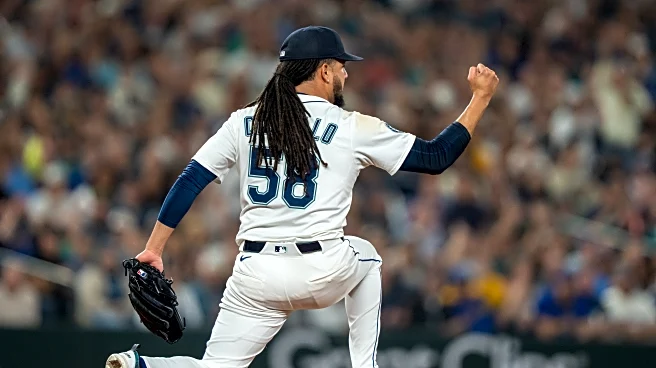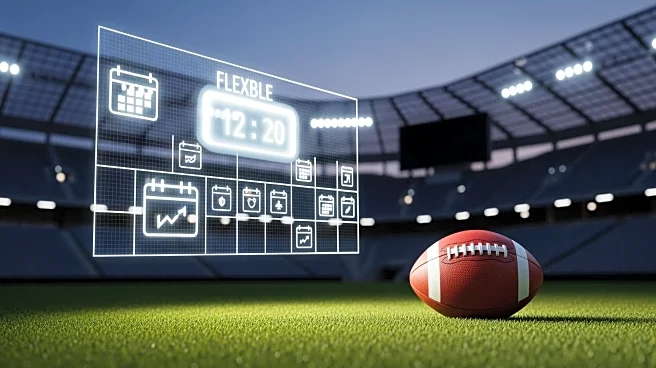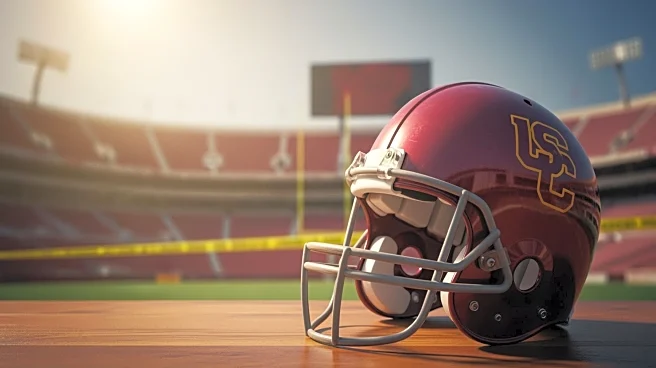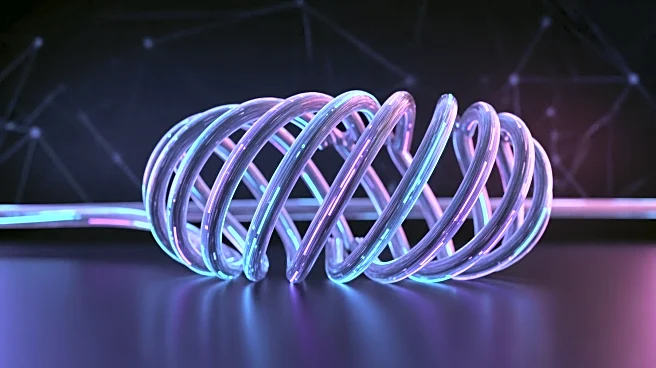Luis Castillo has told the story of how he got the nickname “The Rock” many times, but it took on extra significance as he told it to a room full of national media before the start of the ALDS.
If you don’t
know the story, here’s how it goes: While his mother was pregnant with Luis, Castillo’s father had gone to cultivate the family’s crops. When he returned from work later that morning, he found his pregnant wife on the floor of their home experiencing contractions and in significant pain. His father called Luis’s grandmother, who had grown up in a highly rural area of the Dominican Republic, to come help. They found a truck— “this was in 1992, so a long time ago” – and loaded Luis’s mother up in the back, where his grandmother placed a rock on his mother’s forehead to relieve her pain, a folk belief common in the rural hills of the Dominican Republic.
But the actual baseball nickname came about when Castillo was throwing a bullpen for his new organization in Cincinnati. Wanting to impress the coaches, he hurled his fastball at 97-98 mph over and over again. After his bullpen, his catcher came up and welcomed “The Rock.” The name stuck with Castillo, reminding him of his childhood lore.
Call it nominative determinism, but Castillo has grown to resemble his sobriquet, at least on the mound. He has been a steadying presence in the Mariners’ rotation since they traded for him in 2022, helping to spur the team to their first post-season berth in decades and break the historic drought. Though he’s diminished some from his three-time All-Star form in recent seasons, he’s still a solid presence, making 30+ starts in all but one year since 2018, his first full professional year. He’s one of baseball’s last great workhorse pitchers, ranking fourth on the list of innings pitched since 2018 behind José Berríos, Aaron Nola, and Zack Wheeler, with 1321.1.
Obviously there’s a good portion of genetic or biomechanical luck involved in keeping a pitcher on the mound long-term—maybe the healing properties of that rock transferred to him—but part of what keeps Castillo going strong is his learner’s mindset. While he has thrown more innings than some of his rotation-mates combined (pick a pair), he doesn’t consider himself the de facto leader of the pitching staff.
“I don’t see myself as a guy with more experience or as an older guy in that pitching staff or the starting rotation,” he said through translator Freddy Llanos. “I see myself in that group as just another guy, someone who needs help, who can ask for help. And that’s what’s great about the group—the pitching coach, any other guys in that rotation—we’re always giving advice and trying to help each other in whatever it is that we need.”
This group of starters is more of a circle than a hierarchy. It’s not uncommon to see them sprawled across folding chairs, watching the day’s bullpen and chatting about what they see. But this season, as injuries have caused a changing cast, Castillo has borne out the old cliché that the best ability is availability, giving manager Dan Wilson at least one name written in ink in a season where various other starters cycled through availability.
Even when Castillo went through a late-season swoon of his own, posting a run of rough starts from mid-August and struggling especially on the road, he still took the mound every fifth day and gave the team what he had, faithful that he would bounce back. For as consistent as he has been on the mound throughout his career, he’s even more consistent mentally, refusing to allow doubt or fear to enter his mind and maintaining a unflappable positive mindset. If it was his mother and grandmother that gave him the nickname The Rock, it’s his father who gave him the durability of one.
“The positive mentality…I always try to have it because it helps me to not doubt myself, you know, doubt my abilities, doubt what I can do,” he said. “And I think that came from my dad. He told me that if you stay positive, you can’t really doubt yourself, because when you start doubting yourself, that’s when you start losing who you are.”
Not only does Castillo try to maintain that positive mindset for himself, he impresses it on his teammates, as well. When the team was scuffling on the road after the All-Star Break, he spread his message of positivity to the clubhouse.
“You know, right before Atlanta, we were having some bad moments. The team wasn’t performing well. But I’ve always said it every time they ask me, “It’s a long game, baseball, and you live through good times, and you live through bad times.“
Facing a deficit in just their second trip to the postseason in decades, the Mariners will need their Rock more than ever. Castillo doesn’t pretend that the postseason is the same animal as the regular season, and says he gets fired up by the fans just as much as anyone.
“The adrenaline. The adrenaline is different,” he said, citing his favorite thing about playoff baseball. “These kinds of games, you know, they come with a lot of intensity, so I hope that today’s and tomorrow’s game, you know, the fans bring it and bring that intensity.”
But for as steady as he is, Castillo doesn’t do the same things every time. He’s one of the Mariners’ more adept pitchers at adjusting on the fly, reading what hitters are seeing from him. He has often said that the game speaks to him and he listens. Even the Rock knows when to bend.
“I think the game speaks to us pitchers, you know, right from the very beginning. So a batter always comes up with a plan and is always adjusting, so I think we have to do that too. If we’re always staying on the same page, keep doing the same thing, you’re not going to have the best results. So you’re constantly having to see what the batters are doing, what’s going on in the game, and because of that, you’re able to have those good results.“
Tonight, the game will speak to Castillo, and he will listen. For every Mariners fan’s sake, let’s hope he likes what he hears.









